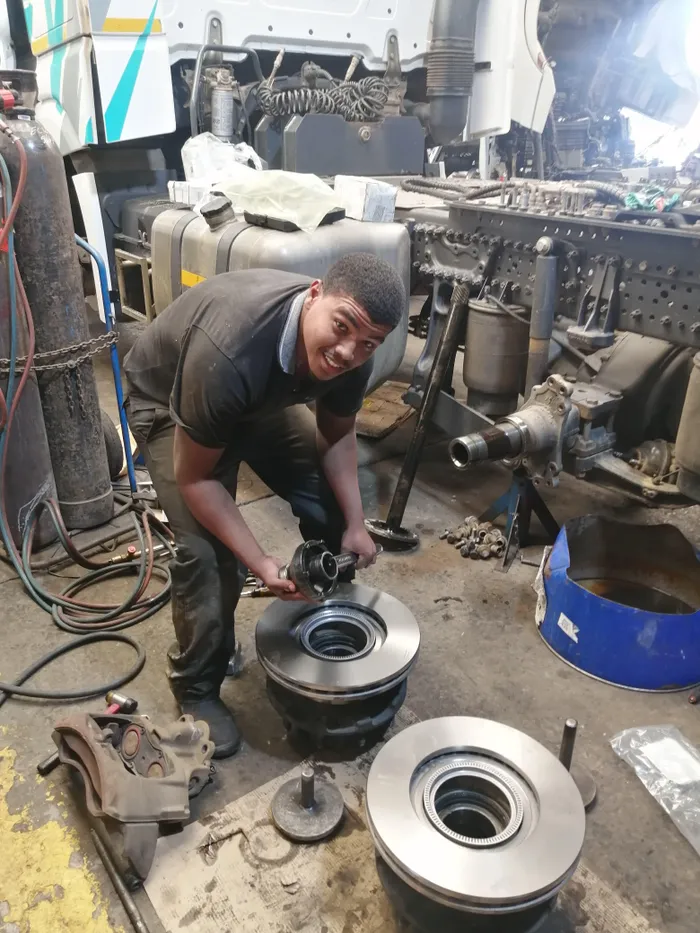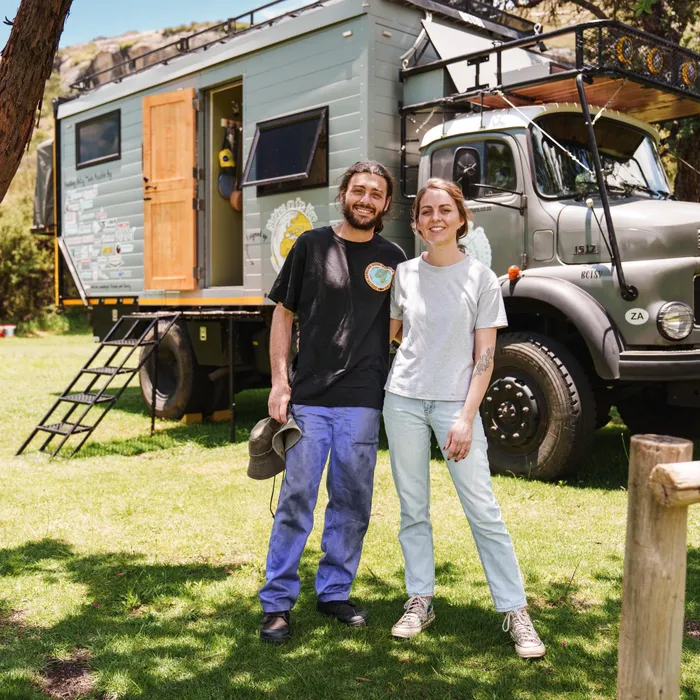
Bradley Peters an East London mechanic helped a terminally ill patient in South America by signing up as a bone marrow donor.
Image: Supplied.
A South African man has given a stranger the ultimate gift of life, 6 500 kilometres away, on another continent and in an unknown country.
East London mechanic Bradley Peters, 23, signed up to be a bone marrow donor last year, little did he know that this selfless act would make him the perfect match for a terminally ill patient in South America. Recounting his story this week, Peters told the Independent on Saturday that how it came about was nothing short of a miracle, “a weird story of coincidence”.
Peters worked at a garage when he met Robin Lewis, a stem cell transplant survivor and his wife, Jolandie, who had started an inter-continental stem cell recruitment drive. When Betsy their custom-made truck broke down they ended up at the garage where Peters was an apprentice mechanic.
“So there was a problem with his truck. They stayed for about two weeks and Robin told us what he was doing and that he was a survivor. Close to the last day he asked us if we wanted to sign up. He didn't need to tell me the whole story. I was just game,” said Peters.

Robin Lewis and his wife Jolandie are on a 64-country, 10-year voyage on their Matches on the Map campaign to encourage people to sign up as bone marrow donors.
Image: Supplied
All his colleagues signed up as donors and Peters said it happened at a time when he had already adopted a healthier lifestyle. A few months later he received a call from the South African Bone Marrow Registry (SABMR) saying that he was a potential match for someone who needed a transplant.
“I wasn’t sure if it was a scam as I had already forgotten that I had signed up. I had no idea that a cheek swab would be the beginning of saving someone’s life.”
Initially his mom was a bit apprehensive but once she understood the process he had her full support. “At first she couldn't handle the fact that I was going to do this. To her it sounded like something from a sci-fi movie.”
He was flown to Cape Town for a series of tests to ensure that he was in good health and a suitable match.
When this was confirmed, he flew back for another week to complete the process.
Peters said his colleagues were proud of him but he told them not to make a fuss.
“I don't want to be recognised as a superhero or someone who should get a Nobel Peace Prize.” Now he is encouraging others to also sign up as donors.
“It's a once in a lifetime opportunity to save someone and if God has chosen you to be someone's saviour or to help someone in life, I think you should just heed the call because one day you might end up in a similar situation.”
For Lewis, finding a donor for someone during their Matches on the Map campaign is a dream come true.
In 2018 he underwent a stem cell transplant after he was diagnosed with Fanconi Anaemia, a genetic DNA repair disorder that can lead to bone marrow failure, leukaemia and or solid tumours in the body.
Then in 2023 he and his partner left their home in Mpumalanga, with Betsy that runs on used cooking oil, to embark on a 64-country, 10-year voyage to publicise their donor campaign.
“Finding our first match in Bradley has hugely motivated us to keep pushing onwards. We’ve been on the road for the last 19 months and held successful recruitment drives in Eswatini, Lesotho and South Africa, and we’re currently traversing our fourth country, Namibia. This has by far been the highlight of our project.”
Deputy Director for the SABMR Jane Ward says finding a suitable stem cell donor match for any patient is a 1 in 100 000 chance and the odds increase even further based on ethnicity. She said the donor pool in South Africa is not reflective of the country’s population, meaning that finding a donor for patients of colour is near impossible.
“Despite access to nearly 43 million registered donors globally through the World Marrow Donor Association, many patients in desperate need still do not find a suitable donor with a matching tissue type. The more donors we have, the more patients we can help. We are honoured to have been able to secure a match within South Africa to give this patient a second chance at life,” said Ward.